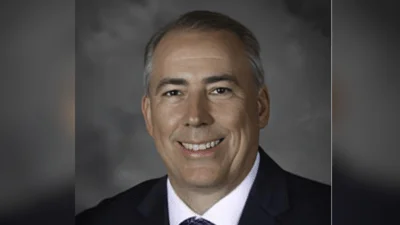The first recipients of the COVID-19 vaccine will likely be frontline health care workers and elderly people living in nursing homes. | pixabay
The first recipients of the COVID-19 vaccine will likely be frontline health care workers and elderly people living in nursing homes. | pixabay
The announcement of two possible COVID-19 vaccines developed by pharmaceutical corporations Pfizer and Moderna have renewed hope of a possible end to the global plague that has claimed the lives of more than 1.5 million people and infected more than 69 million people worldwide, according to Worldometer.
But some will have to wait longer than others to receive their first dose of the vaccine, and others may not get vaccinated at all.
In Wayne County, there have been more than 68,500 confirmed coronavirus cases and more than 3,100 people have died from the virus, according to information from Michigan.gov.
The state of Michigan has released its vaccine rollout plan, which prioritizes health care workers on the front lines, followed by elderly residents in nursing homes, and other communities that are at high risk of being adversely affected by the coronavirus, including minority groups, the homeless, incarcerated individuals, college students and rural communities, according to Michigan.gov.
Priority groups in Michigan could start receiving the vaccine as soon as it is approved, which could be in the next few weeks. Other groups could have access to the vaccine in late winter or early spring of 2021, according to Arnold Monto, an infectious disease expert at the University of Michigan.
There are no plans to give the vaccine to children at this time, as researchers are unsure of any adverse reactions it may have, according to Bridge Michigan.
Vaccines from both corporations will require double doses less than a month apart to maximize effectiveness. "You're not as fully protected until you get the second dose,” Monto told Bridge Michigan.
Monto is the committee chair of the U.S. Food and Drug Administration's (FDA) Vaccines and Related Biological Products Advisory Committee, and he will help determine the safety of the upcoming vaccines, which will require FDA approval before they can be administered to the public.
While most vaccines take anywhere from 15 to 20 years to develop, Monto advises that the coronavirus vaccines, which were developed within a year under the federal plan Operation Warp Speed, appear to be safe and there should be no cause for concern about the short development time, because scientists like himself have been studying coronaviruses for years.
"What I want to convince you of... is that we are doing exactly what we ordinarily do with vaccine development, but on a shorter timeline,” Monto told Bridge Michigan.
The Pfizer and Moderna vaccines have a 94% efficacy rate, and according to Pfizer, out of the 41,135 participants in their vaccine study who received two doses of the vaccine instead of the placebo, only eight participants tested positive for COVID-19 and one participant suffered a severe case of the virus.
The vaccine has shown mild side effects, including body aches and fever, according to Monto.
"There is no indication that we're going to have any surprises, but obviously, you don't know what's going to happen," Monto told Bridge Michigan. "Safety monitoring is going to continue."


 Alerts Sign-up
Alerts Sign-up